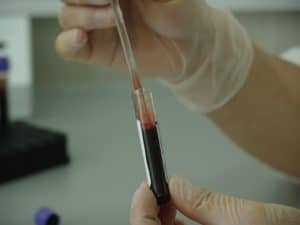 Blood alcohol concentration (BAC) is the measurement used in most drunk driving situations. It is the number that is read on a breathalyzer test, or if that test isn’t possible, BAC can be determined through urine or blood. It’s an important number because across the U.S., a person is considered too drunk to drive if their BAC is at or above .08 percent. So, what happens if a blood sample that needs a BAC test is called into question for the way it was handled?
Blood alcohol concentration (BAC) is the measurement used in most drunk driving situations. It is the number that is read on a breathalyzer test, or if that test isn’t possible, BAC can be determined through urine or blood. It’s an important number because across the U.S., a person is considered too drunk to drive if their BAC is at or above .08 percent. So, what happens if a blood sample that needs a BAC test is called into question for the way it was handled?
That’s the current problem that Missouri is facing; the debate over whether refrigerating a blood sample affects the BAC level or not. It is a common belief that blood needs to be refrigerated to preserve the chemical composition, and a quick online search shows that there are a lot of DUI defense attorneys who use mishandled blood samples to exonerate a defendant in court. Research goes both ways, with different scientists endorsing or opposing theories that un-refrigerated blood can ferment (and increase the BAC reading) if not kept cold enough.
However, the National Highway Transportation Safety Agency (NHTSA) has published a guideline about the issue. Essentially, despite a common sense belief that blood alcohol can increase due to warmth and fermentation of non-refrigerated samples, the NHTSA believes there is no proof of this and that a BAC reading is reliable, no matter the temperature. Plus, the vials used to collect the samples are treated with sodium fluoride so that yeast cannot grow and the sample doesn’t have increased alcohol due to fermentation.
Missouri may be currently under fire for a lack of blood sample refrigeration, but they’re not out in the cold when it comes to keeping DUIs down. While the debate continues, Missouri keeps on fighting drunk drivers with strict laws, ignition interlock devices and an eye on improving safety across the state.

Leave a Reply
You must be logged in to post a comment.